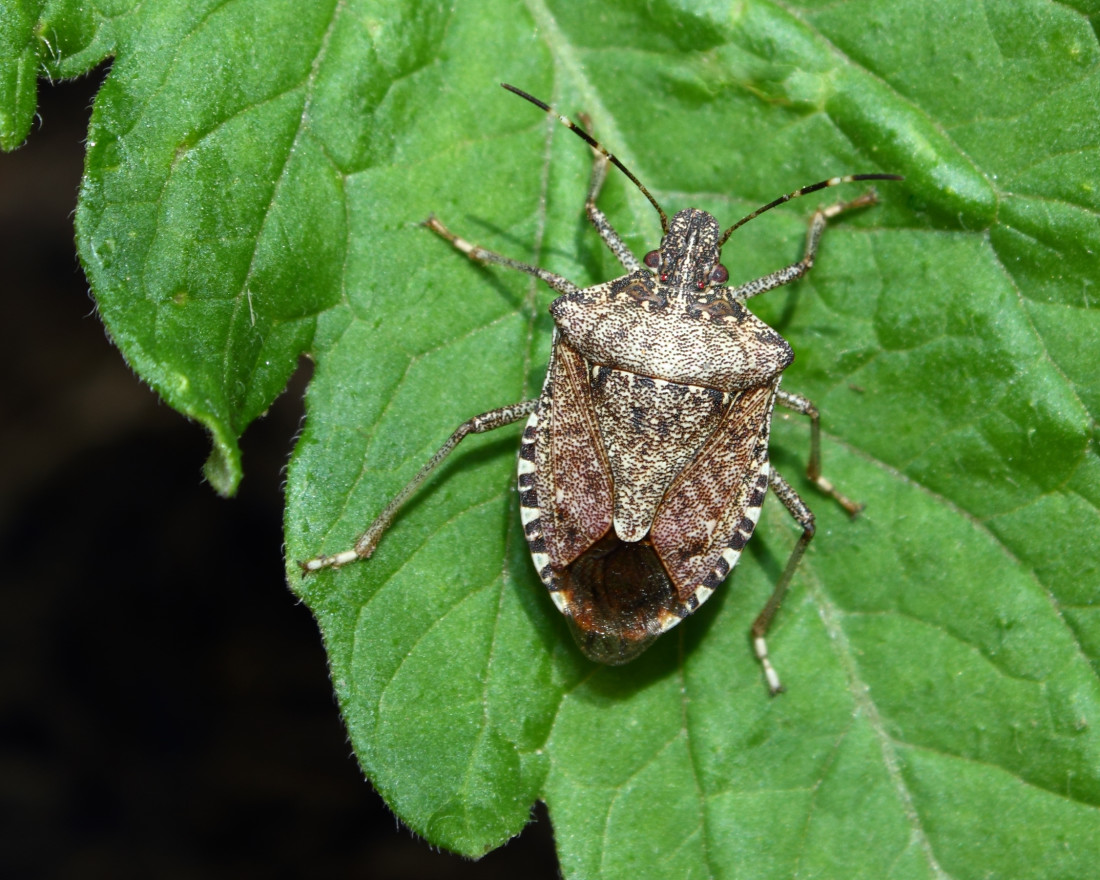Local agriculture expert Patryk Battle likes to tell farmers that 90 percent of all pest problems can be solved by strategies he calls “farmscaping” — that is, creating an environment that encourages naturally occurring predators of common farm pests to move in, set up housekeeping and start a family.
But what about the remaining 10 percent? The ones Battle calls “recalcitrant pest and disease problems”? Solving those challenges, Battle says, takes an extra effort, one that may involve purchasing predator insects or biological agents.
While common local insect foes like the bean and squash beetles still pose a threat, Boone-based agricultural entomologist Richard McDonald of Symbiont Biological Pest Management says, “We have a totally different pest spectrum than we had 10 years ago.” Non-native insects such as the brown marmorated stink bug, spotted wing drosophila and kudzu bug — many of which ended up in the United States after hitching a ride on cargo ships from Asia or Africa — have few natural predators in this country, and the unwelcome newcomers are causing significant damage to crops.
Battle and McDonald (aka Dr. McBug) will share strategies for natural pest control at a daylong educational session on Saturday, March 31, at Living Web Farms in Mills River. Workshop participants will learn how beneficial pests work and how to create the conditions to maximize their effectiveness. Biological agents that combat vegetable diseases will also be covered.
“As we learn to deal with an ongoing cascade of problems, often resulting from global trade and climate disruptions, our default first line of defense will always be maximum biodiversity,” Battle says. But while patience is a virtue when it comes to implementing farmscaping principles, he continues, growers must sometimes “make the decision [to intervene] rather than dither for one more year and suffer the consequences of an intractable insect problem.”
Costs for purchasing the critters and agents covered in the upcoming workshop vary widely, Battle says. Collaborating with neighbors to purchase beneficial insects or other interventions can lower the financial burden and lead to better outcomes, he points out. One practical tip: When ordering live insects through the mail, be sure you’ll be present to receive them. Battle still mourns the shipment a delivery driver left in a sunny spot on a summer’s day. By the time the farmer found his package, the tiny warriors within had already lost the fight.
WHAT: Workshop to help organic growers recognize when to purchase biological agents to fight persistent pest and disease problems. The first 90 minutes of the session will cover the basics of nurturing biodiversity on the farm; the “buying biology” portion of the workshop begins at 9:30 a.m.
WHEN: Saturday, March 31, 8 a.m.-5 p.m.
WHERE: Living Web Farms, 176 Kimzey Road, Mills River
COST: Sliding scale; suggested donation $15
INFO: 828-891-4497 or livingwebfarms.org




One way to prevent pests is to prepare the garden properly. There are some beneficial bugs that bring complexity and competition to your growing space and they reduce the ability for pests have free reign. Using of pesticide also effective which are very successful for all crops and conditions. The importance of keeping the environment and people healthy, it should be the pest control method of choice. Most pest control Manhattan NY companies are choice of organic pest control products that are safe to use around your home without posing any dangers.
I agree with you, such type of bugs can be of great problem to our garden. And that should well taken care of. I think contacting the professionals is always preferable.
True these bed bugs are nasty creepy disturbing creatures.